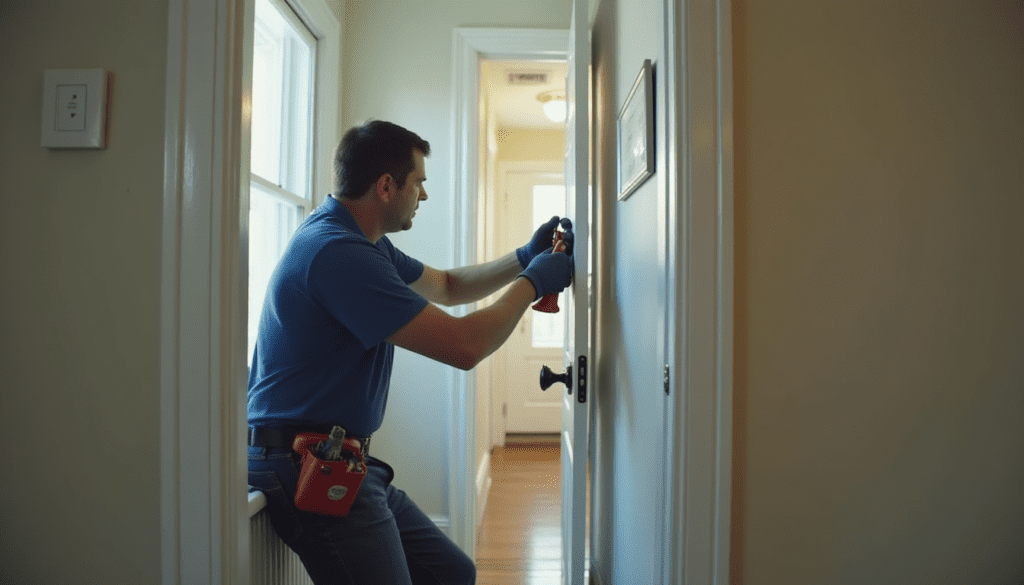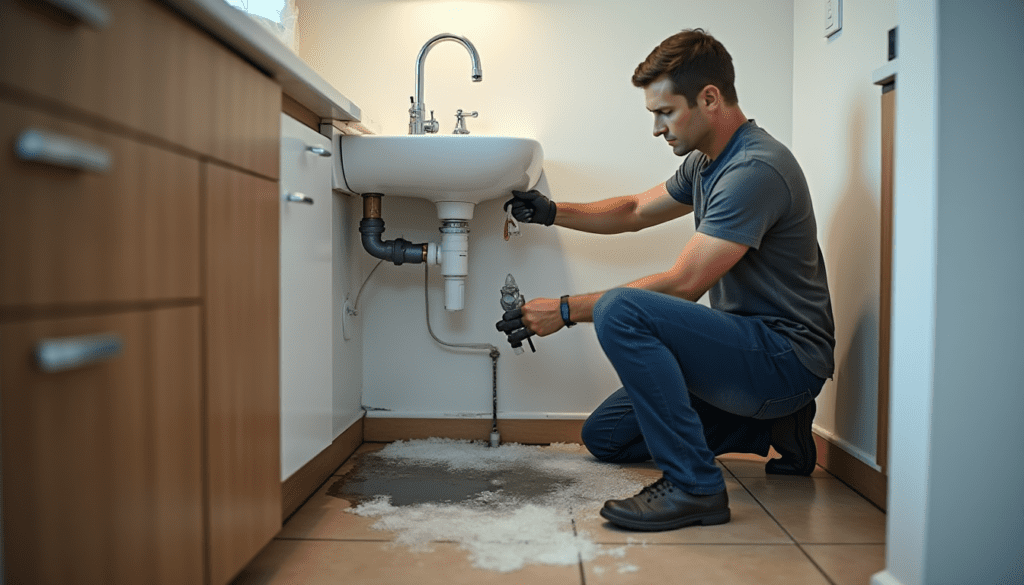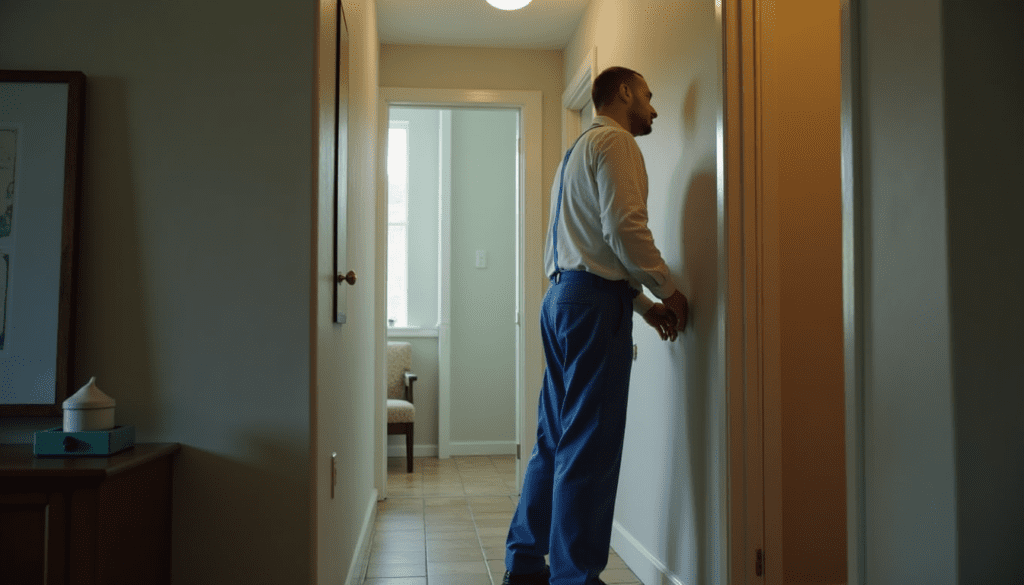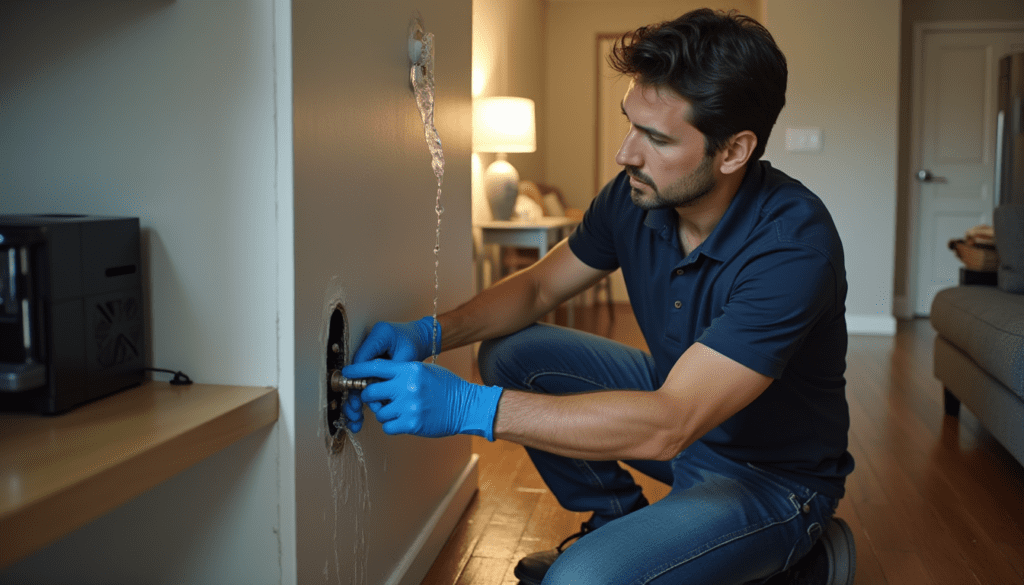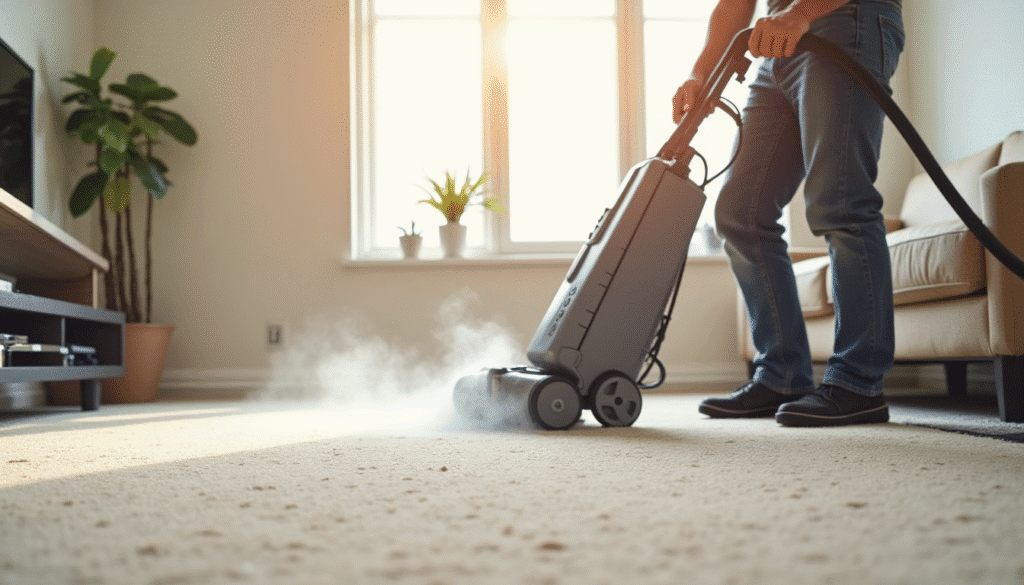Why This Issue Matters in Plainfield, NJ
Moving out of a rental property in Plainfield, NJ, often raises a big question for both landlords and tenants: who pays for carpet cleaning? For many tenants, the expectation is that normal use of a carpet—light wear from daily living, slight fading, or the flattening of fibers in high-traffic areas—should not lead to deductions from their security deposit. On the other hand, landlords may feel strongly that professional cleaning is required to restore the unit for the next tenant. This creates tension because New Jersey’s rental laws are designed to protect tenants from unfair charges while still allowing landlords to recover the costs of damage beyond normal use. In Plainfield, where the rental market is active and turnover is common, understanding the legal standards is not just important—it’s necessary to avoid disputes, legal claims, and damaged relationships.
Carpet cleaning at move-out becomes even more controversial because tenants may not realize that their landlord is legally limited in what they can deduct. Some tenants, fearing they might lose their entire security deposit, may pay out of pocket for unnecessary cleaning. Others may refuse entirely, sparking conflict and even small claims cases. By looking at the New Jersey Truth in Renting Guide, reviewing past disputes, and understanding how courts in Union County (where Plainfield is located) approach these cases, both landlords and tenants can better protect themselves.
This article breaks down everything Plainfield landlords and tenants need to know: what qualifies as normal wear and tear, when a landlord may deduct cleaning charges, what the law says about lease clauses, and how each side can document their position. We’ll also highlight local considerations that affect Plainfield specifically, along with best practices for avoiding unnecessary conflict.
2. Understanding New Jersey’s “Normal Wear & Tear” Standard
At the heart of any carpet cleaning dispute in New Jersey is the distinction between normal wear and tear and tenant-caused damage. The state makes it clear that landlords cannot pass on the costs of regular upkeep. For example, slight discoloration in high-traffic areas, gradual fading due to sunlight, or the minor flattening of fibers that occurs over years is not chargeable to the tenant. These are natural results of use and time, and they fall under the landlord’s responsibility as part of maintaining rental property.
However, the moment the carpet suffers visible damage that goes beyond ordinary use, landlords may take deductions. Examples include:
- Large beverage or food stains that cannot be removed with a standard vacuum or light cleaning
- Pet urine stains or lingering odors that require special enzymatic treatments
- Cigarette burns, melted wax, or chemical spills that damage fibers
- Paint splatters, mud tracked in repeatedly, or grease stains from neglect
In these situations, landlords may legally withhold a portion of the security deposit to cover professional carpet cleaning or replacement. But documentation is critical: landlords must show that the damage was caused by the tenant, not by ordinary aging of the carpet. This often means providing dated photos, inspection reports, and receipts for cleaning or repair services.
Plainfield landlords often rely on comparisons between the move-in condition report and the move-out inspection to prove their case. Without this documentation, deductions are risky and can be challenged successfully in small claims court. Tenants, for their part, should be proactive about photographing carpets at move-in and move-out so that they can defend themselves against unfair charges.
3. When Can You Charge for Carpet Cleaning in Plainfield?
In Plainfield, landlords are bound by the same rules as landlords throughout New Jersey. That means they cannot automatically require tenants to pay for professional cleaning unless the carpet has been left excessively dirty or damaged. The law is designed to prevent blanket deductions that eat into a tenant’s security deposit unfairly. Instead, landlords must follow a set of principles:
- Routine turnover costs: General cleaning or shampooing after a tenant leaves is a landlord’s expense. It is part of getting a rental ready for the next tenant.
- Damage or neglect: If a carpet is left in a condition beyond ordinary use—stained, heavily soiled, or otherwise damaged—the cost may be fairly deducted. For instance, a Plainfield landlord might deduct for pet urine damage that requires deep steam cleaning with deodorizing treatments.
- Documentation requirements: Landlords must keep receipts, contractor invoices, and photos. Without these, deductions are not legally justified. Courts in NJ almost always rule against landlords who cannot prove costs with proper records.
- Lease terms: Even if a lease mentions carpet cleaning, the clause must still comply with state law. A clause that demands professional cleaning for every tenant, regardless of the carpet’s condition, is usually struck down in court.
- Tenant rights: Tenants can dispute charges by writing a demand letter, requesting deposit return with interest, or filing a claim in court if deductions seem unlawful.
For landlords in Plainfield, the safest practice is to only charge when damage is obvious and documented. For tenants, the best protection is to leave the carpet as clean as possible, take dated photos, and keep any receipts if they choose to hire their own professional cleaner before moving out.
4. New Jersey Truth in Renting Guide: Key Legal Requirements
The New Jersey Truth in Renting Guide is the state’s official handbook for both tenants and landlords. While it covers many aspects of rental law, its rules on deposits and deductions are especially important for carpet cleaning disputes. The guide specifies that landlords must return the tenant’s security deposit within 30 days after move-out, along with an itemized list of any deductions. If the landlord keeps part of the deposit for carpet cleaning, the deduction must be justified, documented, and tied directly to damage beyond normal wear and tear.
Several important points emerge from the guide:
- Receipts are mandatory: Landlords cannot simply estimate cleaning costs. They must provide receipts or invoices from professional cleaners to show the actual expense.
- Itemized statements: A vague description like “carpet cleaning” is insufficient. The landlord must break down costs and explain the nature of the problem (e.g., “steam cleaning due to pet stains in living room carpet”).
- Tenant rights: If the tenant believes the charges are unfair, they can challenge the deductions in small claims court. Many tenants in Plainfield have successfully recovered funds because landlords either failed to provide receipts or tried to charge for normal wear.
- Blanket charges discouraged: The guide echoes New Jersey law by discouraging clauses that require automatic cleaning. Landlords must justify every deduction.
Tenants in Plainfield should always request the itemized statement in writing. Landlords who fail to provide one risk not only losing the case in court but also being required to pay additional penalties, including interest and possibly even attorney’s fees.
5. Lease Clauses: Are Mandatory Cleaning Fees Valid in NJ?
Many leases used by Plainfield landlords include clauses requiring tenants to pay for professional carpet cleaning at the end of their tenancy. These provisions are common because landlords want to maintain consistency across units and ensure carpets remain in good condition. However, whether these clauses hold up in court depends on how they are written.
Courts in New Jersey generally reject blanket lease provisions that conflict with tenant rights under state law. For example, a lease clause that states “Tenant must pay for professional carpet cleaning upon move-out, no matter what” is unlikely to be enforceable. That’s because such a clause forces tenants to pay even when the carpet only shows normal wear and tear, which is illegal to charge for. On the other hand, a clause that says, “Tenant must return carpets in a reasonably clean condition, and professional cleaning may be required if carpets are stained or damaged,” may be upheld because it is tied to actual tenant responsibility.
In practice, this means landlords in Plainfield should carefully review their lease agreements. Overly broad or aggressive clauses may backfire, leading to disputes that cost more than the cleaning itself. Tenants should also be aware that just because something is written in the lease does not automatically make it enforceable. If the clause contradicts state law, courts will usually side with the tenant.
To avoid disputes, both parties should communicate early. If a tenant knows they have spilled something on the carpet, they may choose to hire a professional cleaner before move-out and present the receipt to the landlord. Landlords, for their part, should avoid relying solely on lease language and instead build their case with documentation, photos, and receipts.
That completes Sections 1 through 5 of this in-depth guide. We’ve explored why the issue matters in Plainfield, the state’s wear-and-tear standard, when landlords may legally charge, what the Truth in Renting Guide requires, and how lease clauses are treated in New Jersey. These foundations set the stage for the next sections, which will cover inspections, tenant defenses, handling deposits, and common mistakes landlords should avoid.
6. Required Documentation: Move-In and Move-Out Inspections
One of the most powerful tools for preventing disputes over carpet cleaning charges in Plainfield is proper documentation. New Jersey law emphasizes the importance of having clear, dated records that show the condition of a rental unit both before and after a tenant occupies it. Without this evidence, landlords may struggle to prove that deductions from the security deposit are legitimate.
At the start of a lease, landlords should provide tenants with a detailed move-in checklist that covers the condition of carpets in each room. This checklist should be signed by both parties. Tenants are encouraged to take time-stamped photos or videos to back up their observations. Doing so prevents a “he said, she said” scenario later. If the carpet already has small stains, fading, or fraying, tenants should document these issues immediately to avoid being held responsible later.
When move-out time comes, a final inspection should be conducted. Ideally, the tenant should be present to review the carpet’s condition alongside the landlord. This cooperative approach not only increases transparency but also reduces the chance of surprise deductions. Courts in New Jersey consistently favor landlords who can show a clear paper trail that includes both checklists and photographic evidence. Tenants, on the other hand, are well-protected when they can prove that a stain or condition existed before they moved in.
7. Examples of Tenant Damage vs. Acceptable Wear
Disputes over carpet cleaning usually boil down to one question: is the issue damage or just normal wear? To make this distinction clearer, let’s look at specific examples relevant to Plainfield rental units:
- Acceptable wear: Slight flattening of the carpet pile in hallways, fading from sunlight, or minor dust buildup. These are part of a carpet’s normal lifespan and cannot be deducted from a tenant’s deposit.
- Tenant damage: Red wine stains in the living room, large pet urine spots causing odor, cigarette burns, or heavy mud tracked in and left untreated. These go beyond reasonable wear and may justify deductions for professional cleaning or even replacement.
- Borderline cases: Coffee stains, food crumbs, or minor spills may seem like damage, but if they can be easily vacuumed or spot-cleaned, courts often consider them wear. However, if they are left untreated and result in permanent discoloration, they cross into tenant liability.
The challenge in Plainfield comes when landlords attempt to charge for borderline cases. New Jersey courts typically give tenants the benefit of the doubt unless the landlord can demonstrate that the stain or damage was severe enough to require professional intervention. That’s why documentation is key. A photo of a large stain that required steam cleaning will hold up in court; vague claims without proof will not.
For tenants, understanding the difference between wear and damage helps them prepare for move-out. Renting a steam cleaner for minor stains or vacuuming thoroughly before returning keys can save hundreds of dollars and avoid disputes. For landlords, being realistic about what counts as normal wear prevents unnecessary conflicts and legal challenges.
8. Proper Handling of Security Deposit Deductions
Security deposits are one of the most common sources of tension in the landlord-tenant relationship, especially in New Jersey where the laws are designed to be very tenant-friendly. In Plainfield, landlords must follow strict rules when making deductions for carpet cleaning or any other expenses. The law requires that landlords return the deposit within 30 days of the tenant moving out, along with a written, itemized statement explaining any deductions. Failure to comply can result in penalties, including being ordered to return the entire deposit and, in some cases, pay additional damages.
Here’s what landlords must remember when handling carpet-related deductions:
- Provide full transparency: Itemized statements must clearly explain the cleaning performed, the rooms affected, and the total cost. A vague entry like “carpet cleaning – $250” is often challenged. A better description would be “professional steam cleaning of living room and bedroom carpets due to pet stains – $250.”
- Include receipts: Landlords must attach receipts or invoices from professional carpet cleaners. Handwritten notes or estimates are not considered valid proof in court.
- Avoid excessive deductions: If cleaning a small stain costs $100, landlords cannot deduct $500 claiming “full carpet replacement.” Costs must reflect actual, reasonable expenses.
- Return unused balance: After deductions, the remainder of the deposit (plus any legally required interest) must be returned to the tenant promptly.
For tenants, this means they should carefully review the itemized statement and receipts provided. If the charges seem inflated or lack documentation, tenants can dispute them. Many Plainfield renters successfully recover withheld funds through small claims court, where judges demand clear evidence before siding with landlords.
9. Evidence and Receipts: Legal Compliance and Proof
When it comes to carpet cleaning charges, evidence is everything. New Jersey law does not allow landlords to simply assert that a carpet was dirty and charge tenants accordingly. They must prove it. That means keeping detailed records that can stand up in court if necessary. For landlords in Plainfield, best practices include:
- Before and after photos: Taken with clear timestamps, these photos should show the carpet’s condition at move-in and move-out. Landlords should photograph entire rooms, not just small sections.
- Inspection reports: Both parties should sign off on move-in and move-out checklists, which provide written evidence of the carpet’s condition.
- Receipts from professionals: Invoices from licensed cleaning companies are the strongest proof. They should specify the work performed (e.g., “deep steam cleaning with odor removal for pet urine in master bedroom”).
Tenants also benefit from keeping their own records. If a tenant hires a professional cleaner before moving out, presenting that receipt to the landlord can serve as powerful defense against further charges. If the landlord still attempts to deduct, the tenant can show the court they already fulfilled their obligation.
Courts in Union County, where Plainfield is located, take evidence seriously. Judges frequently dismiss landlord claims when proof is missing or incomplete. In fact, landlords who fail to provide adequate documentation not only lose their claims but sometimes face orders to return the entire security deposit plus interest. On the other hand, tenants who provide their own documentation often prevail, even if the landlord insists the carpet required extra work.
10. Common Mistakes by Landlords That Lead to Disputes
Even experienced landlords in Plainfield sometimes make mistakes that create unnecessary disputes over carpet cleaning charges. Understanding these pitfalls helps avoid legal issues and tenant complaints. The most common mistakes include:
- Charging for normal wear: Deducting money for routine carpet aging almost always backfires. Courts classify fading, flattening, or light dirt as wear, not damage.
- Lack of documentation: Failing to take photos, collect receipts, or provide an itemized statement weakens the landlord’s position. Judges will nearly always side with the tenant if proof is missing.
- Overcharging for cleaning: Inflating costs or claiming replacement when cleaning would suffice can be considered unreasonable and unlawful.
- Relying solely on lease clauses: Assuming a lease clause requiring cleaning is enforceable without considering state law often results in the clause being invalidated in court.
- Not involving tenants in inspections: Conducting inspections without tenants present increases disputes. Transparency helps build trust and reduces conflict.
For landlords, avoiding these mistakes is the best way to maintain a smooth relationship and protect against legal challenges. For tenants, knowing these common errors gives them confidence in disputing unfair deductions. A well-informed tenant is less likely to accept unlawful charges and more likely to fight for their rights in court if necessary.
This concludes Sections 6 through 10, which covered documentation, distinguishing wear from damage, handling security deposits, the importance of receipts, and common landlord mistakes. These sections build on the foundation from earlier, moving deeper into the practical steps landlords and tenants in Plainfield, NJ, can take to avoid costly disputes and protect their rights.
11. What Plainfield Tenants Can Do to Contest Charges
Even when tenants leave their Plainfield rental in good condition, they sometimes face unexpected deductions for carpet cleaning. Fortunately, New Jersey law provides strong protections that allow tenants to dispute unfair charges. The first step is always communication. Tenants should request an itemized list of deductions along with receipts, which landlords are legally required to provide within 30 days. If the landlord cannot provide this documentation, the charge is immediately suspect.
Tenants who believe they are being unfairly charged can take several actions:
- Send a written demand letter: Clearly state that the deduction for carpet cleaning is not justified and request the return of the full deposit. Written communication is important for creating a record.
- Provide proof: Submit copies of photos taken during move-out, receipts from any professional cleaners hired, or evidence showing that the carpet’s condition was normal wear and tear.
- File a small claims case: In Union County, tenants can take landlords to small claims court if the deposit was wrongfully withheld. Judges are strict about requiring landlords to prove their charges.
- Leverage local resources: Tenants can consult legal aid services like Legal Services of New Jersey, which offers guidance on tenant rights, or community housing advocates who are familiar with Plainfield rental issues.
It is common for tenants who pursue these steps to recover their deposit, sometimes with added interest or penalties against the landlord. New Jersey courts aim to ensure landlords cannot profit from vague or unfair deductions. For Plainfield tenants, understanding these options is essential to protecting both finances and rights.

12. Best Practices for Landlords: Fair Carpet Cleaning Policies
While tenants need to defend themselves against unfair charges, landlords in Plainfield also benefit from adopting fair, transparent policies around carpet cleaning. Not only does this reduce disputes, but it also helps maintain a reputation for professionalism and fairness—important qualities in a competitive rental market.
Some best practices include:
- Set clear expectations upfront: During lease signing, explain how carpets should be maintained, what counts as damage, and what would require professional cleaning. Avoid vague or overly broad clauses.
- Conduct joint inspections: Invite tenants to join both move-in and move-out walkthroughs. This transparency builds trust and reduces arguments.
- Keep thorough records: Always take time-stamped photos and store cleaning receipts. These records protect landlords in disputes and help them remain compliant with NJ law.
- Be reasonable: Avoid charging for minor wear that naturally occurs. Reserve deductions for obvious, well-documented damage.
- Offer flexibility: If tenants want to hire their own professional cleaners before move-out, accept their receipts. This can save both sides time and stress.
By following these practices, landlords can enforce fair standards without risking disputes or legal trouble. In Plainfield, where the rental market is diverse and competitive, maintaining good landlord-tenant relationships can mean the difference between high tenant turnover and long-term stability.
13. Local Considerations Specific to Plainfield, NJ
Although carpet cleaning laws are uniform across New Jersey, local practices and housing conditions in Plainfield introduce unique considerations. Many of the city’s rental units are older homes converted into multi-family apartments, which means carpets may already have some wear when a new tenant moves in. This makes documentation especially important. Tenants should carefully note any existing wear during move-in to avoid being blamed later.
Another factor is the higher rate of pet-friendly rentals in Plainfield compared to some neighboring towns. Pets can contribute to carpet wear more quickly, which often raises disputes over whether damage is due to normal use or neglect. Landlords who allow pets should consider pet addendums in leases that clearly explain responsibilities regarding carpet cleaning and damage repair.
Plainfield also has a significant renter population, with many tenants moving within the city or from nearby areas like Edison, Elizabeth, and Newark. Because of this mobility, landlords often cycle through tenants more quickly, which increases the importance of fair and consistent cleaning policies. Tenants who move frequently are also more aware of their rights and less likely to accept unfair deductions without a challenge.
Finally, Union County courts, which handle disputes from Plainfield, have a strong record of siding with tenants when landlords fail to provide proper proof. This local judicial tendency reinforces the importance of documentation and transparency for landlords.

14. How Courts in NJ Have Dealt With Blanket Fees
One of the most common mistakes landlords make is assuming that a lease clause automatically gives them the right to deduct carpet cleaning charges. New Jersey courts have repeatedly ruled that blanket fees—such as a standard $200 or $300 charge for cleaning regardless of carpet condition—are unenforceable. These rulings apply equally in Plainfield.
Judges typically base their reasoning on the state’s strong tenant protection laws, which forbid landlords from charging tenants for normal wear and tear. A blanket cleaning fee, by its nature, ignores the difference between damage and wear. Courts have held that such fees shift routine maintenance costs onto tenants, which is not allowed under NJ law.
Cases heard in Union County illustrate this principle well. In multiple small claims cases, tenants were refunded their security deposits after landlords admitted that deductions were based solely on a lease clause requiring professional cleaning. Without specific evidence of damage—like photos of stains or invoices for specialized cleaning—landlords were ordered to return the deposit in full.
This trend makes it clear: landlords in Plainfield cannot rely on blanket fees, even if they are written into leases. To succeed in court, they must show real damage, proper documentation, and receipts for actual expenses. For tenants, this is an important safeguard that ensures they only pay for legitimate, provable costs.
15. Summary: Fair Balance Between Landlord Rights & Tenant Protections
Carpet cleaning at move-out is one of the most contested issues between landlords and tenants in Plainfield, NJ. The law strikes a careful balance: landlords have the right to recover costs for damage beyond normal wear, while tenants are protected from unfair charges that shift routine maintenance expenses onto them. The keys to navigating this balance are documentation, transparency, and fairness on both sides.
For tenants, the best protection is to document the carpet’s condition thoroughly, clean up minor issues before leaving, and be prepared to challenge unfair deductions. For landlords, success lies in setting clear expectations, keeping detailed records, and charging only for damage that can be proven with receipts and photos. Local practices in Plainfield—such as the prevalence of older rental units and the willingness of courts to side with tenants when proof is lacking—make this balance especially important.
By following best practices and respecting the law, both landlords and tenants can avoid costly disputes and move forward smoothly when leases end.
16. For Landlords and Tenants—Next Steps
Whether you are a landlord preparing a Plainfield rental for new tenants or a renter moving out, the next steps are clear. Landlords should review their lease agreements to ensure they comply with New Jersey law, invest in thorough documentation, and adopt fair policies that avoid blanket fees. Tenants should prepare for move-out by cleaning responsibly, photographing the condition of carpets, and knowing their rights if deductions arise.
For more resources on managing security deposits, understanding rental law, and protecting your rights in Plainfield, explore related articles from our site, such as Charging Tenants for Carpet Cleaning on Move-Out in Essex County NJ and Charging Tenants for Carpet Cleaning on Move-Out in Belleville NJ. These guides expand on the same principles discussed here, with local insights tailored to each area.
By staying informed and proactive, both landlords and tenants in Plainfield can reduce conflict, protect their finances, and make the move-out process as stress-free as possible.


